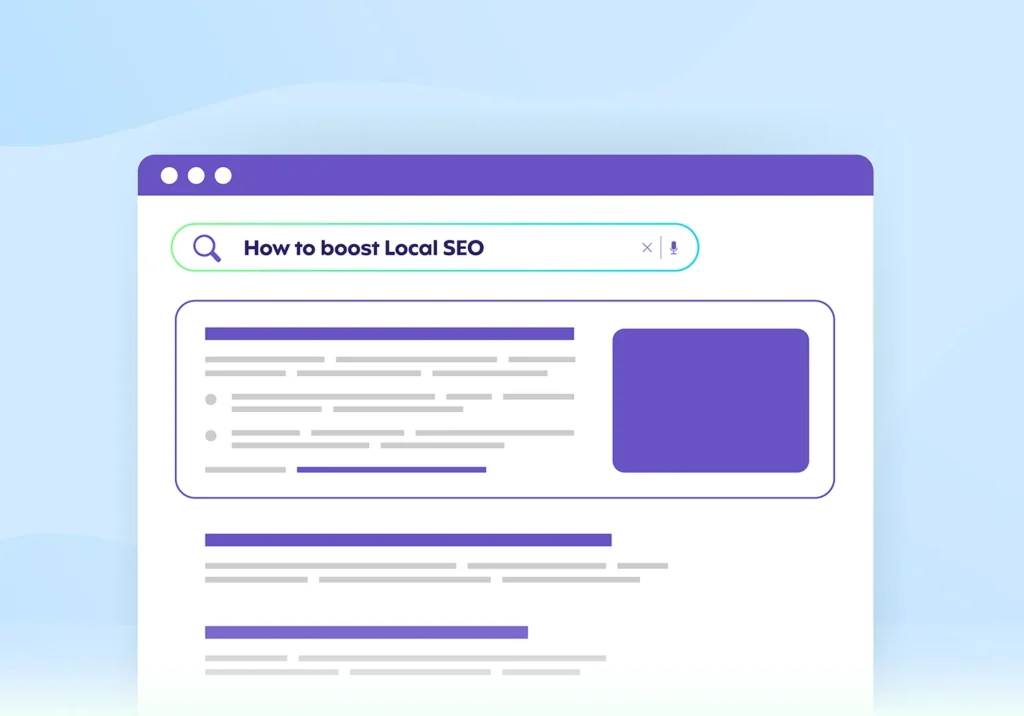Houston’s legal market includes everything from energy law litigators in downtown high-rises to personal injury lawyers serving clients in Katy, Kingwood, and Cloverland. Yet, despite over 18,000 attorneys practicing in Harris County alone, many firms still assume all digital marketing strategies deliver the same SEO results.
Here’s what’s at stake: Over 1/3 of potential clients start their attorney search online, meaning digital strategy for law firms is part of business development. With 65% of law firms spending most of their marketing budget online, the stakes for getting SEO right have never been higher.
With that much riding on visibility, showing up online is no longer optional. But too often, law firms pay for SEO without knowing whether it’s actually working. Why? Because they’re handed case reports filled with vanity metrics and left wondering where the clients are.
1. Track New Clients, Not Just Website Traffic
Your SEO provider sends monthly reports filled with charts about “website visits” and “keyword rankings,” but you’re still asking the same question: where are the actual clients? Most agencies get so caught up in vanity metrics that they lose sight of what really matters to your practice.
Working with Kuniansky Law, we didn’t just deliver a 200%+ increase in organic traffic. We made sure that increase translated to something their team can measure: more consultation requests, qualified leads, and ultimately new clients walking through their doors. The same principle applies to every law firm. Your strategy should start with an SEO Audit and connect you with people who actually need an attorney, not just anyone browsing legal topics.
Would you rather have 10,000 website visitors who bounce or 500 who pick up the phone? The answer is obvious, but it’s easy to lose sight of that when reports focus on metrics that sound impressive but don’t impact revenue.
Ask your SEO team:
- How many consultation requests did you generate for other law firms?
- Can you show specific examples of improved rankings leading to new clients?
- What happens if we don’t see more qualified leads within six months?
2. Deep Houston Market Knowledge
Generic “personal injury lawyer” optimization is like fishing in the ocean when you should be targeting a specific lake. Houston’s legal market has distinct characteristics that smart firms leverage while their competitors cast wide, ineffective nets.
Consider the geography of legal needs in Houston. Energy and maritime law firms tend to cluster downtown near major corporations. Medical malpractice attorneys position themselves near the Medical Center. Family law practices in Katy and Kingwood serve suburban communities with different concerns than inner-city residents.
Here’s where local SEO gets interesting. Searchers often use neighborhood-specific language. Someone might search for “Galleria area attorney” rather than “Houston attorney” because they want convenience and familiarity. These hyper-local searches often have less competition and higher conversion rates.
But local SEO success depends on more than just showing up in search results. Research shows 42% of law firms take an average of 3+ days to respond to a message from a new potential client. If you’re investing in local SEO to drive calls and inquiries, you need to be ready to answer when clients reach out. That quick response time becomes a competitive advantage.
Your SEO and broader digital strategy should reflect Houston’s geographic and practice area realities, not generic legal templates that could apply anywhere in the country.
3. Prepare for AI's Impact on Legal Search
Something fundamental is shifting in how people find legal help. Potential clients increasingly ask AI chatbots preliminary legal questions before they ever contact an attorney. They want to understand their situation and build confidence before making that intimidating first call.
Here’s the opportunity: Google’s AI Overviews now pull 75% of their citations from the top 12 organic search results. This means ranking well gives you double benefits, like direct clicks from traditional search results and inclusion in AI-generated answers that increasingly influence potential clients’ decisions.
We’ve noticed this shift in our analytics data. More users arrive at law firm websites after getting partial answers from AI tools. For example, someone might ask AI “What should I do after a car accident?” and get a general overview, then click through to a Houston personal injury firm’s website for specific guidance about Texas laws and next steps. They’re no longer starting cold. They arrive with basic knowledge but need human expertise.
The firms that succeed create content that answers real questions at different stages of the client journey. Instead of just optimizing for “Houston personal injury lawyer,” they create helpful answers around questions like “What happens after a car accident in Texas?” in an article, FAQ, or other page content. This positions your firm to be featured when AI systems compile comprehensive answers.
4. Demand Clear Reporting That Shows Business Results
We’ve inherited clients from other SEO agencies who couldn’t answer a simple question: “How many new clients did your SEO work bring us?” If that sounds familiar, you’re not alone. Research shows 26% of law firms don’t track their leads at all.
Your SEO investment should connect improved search visibility to consultation requests and new client acquisition. Quality SEO reporting for law firms includes metrics that actually matter to a law practice:
- Phone calls generated from organic search, broken down by practice area
- Contact form submissions with source tracking
- Geographic breakdown of new leads
- Conversion rates from initial contact to consultation scheduling
The goal is connecting dots between SEO investment and your business outcomes. If your current provider can’t show these connections clearly, you’re essentially flying blind on ROI.
5. Insist on Customized SEO Strategy
A personal injury firm competing for Spanish-language searches needs completely different tactics than a corporate law practice targeting Fortune 500 companies. Yet we’ve seen too many agencies apply the same template approach across different legal specialties.
When we worked with Thomas & LoCicero (TLO), we had to structure their website to serve multiple practice areas clearly. Beyond their IP work, they handle complex defamation defense and entertainment law. We created distinct pathways for clients seeking trademark help versus those needing First Amendment defense, with clear URL structures and internal linking that simultaneously helped search engines understand the site’s organization and users quickly find their specific legal needs.
The stakes are high here. Since most law firms ( > 6 out of 10) are already spending heavily online, generic strategies mean you’re competing with identical approaches from multiple firms. You need differentiation that reflects your specific value proposition.
Before committing to any SEO provider, ensure they invest time understanding:
- Your specific practice areas and ideal client profiles
- Which Houston neighborhoods and communities you want to reach
- Your competitive landscape and what differentiates your firm
- How you currently get new clients and what’s working
The most successful campaigns start with deep discovery about your firm’s unique strengths and market position. Be wary of agencies that pitch standardized packages without learning about your practice first.
6. Don’t Risk Your Reputation
Quick-fix SEO tactics can destroy years of reputation building faster than you’d imagine. Agencies that rely on manipulative link schemes and other black-hat methods can land you with some stiff penalties from Google. The recovery process often takes 12-18 months, which is time you can’t afford to lose in Houston’s competitive market.
When Google penalizes your site, you don’t just lose rankings temporarily. You lose the ability to be found when potential clients need you most. While competitors appear at the top of search results, you’re relegated to page three or worse. And it takes a long time to get out of time-out.
Modern SEO best practices should focus on building long-term authority:
- Creating genuinely helpful legal content that addresses real client concerns
- Building authentic relationships with other local businesses and legal professionals
- Earning client reviews through excellent service
- Improving website speed and user experience
When evaluating potential SEO providers, pay attention to how they talk about their methods. If they’re vague or promise rapid results through undisclosed tactics, that’s your cue to walk away. Quality SEO teams are transparent about their approach because they have nothing to hide.
Red Flags That Should End the Conversation
Your law firm’s reputation is too valuable to risk on questionable tactics.
Walk away if you encounter:
- Choose Wisely: What to Watch Out For
|
Warning Sign
|
Why It Matters
|
|---|---|
|
Guaranteed Rankings
|
No one controls Google's algorithm
|
|
Secretive Methods
|
Legitimate SEO isn't mysterious
|
|
Single-Tactic Focus
|
Real SEO requires comprehensive strategy
|
|
Rigid Long-Term Contracts
|
Quality providers offer performance benchmarks
|
Building Digital Authority Your Houston Firm Can Count On
Most search traffic never reaches a website so that makes every click count. The Houston firms we work with see the most return from SEO by pairing local knowledge with clear, helpful content that builds trust early.
Before you invest in an SEO or digital strategy, ask these telling questions:
- “Walk me through your process for a new legal client.” Listen for comprehensive methodology including competitive analysis, technical audit, content strategy focusing on legal topics, and local optimization. Avoid anything that feels like a generic checklist.
- “How do you measure success for law firms specifically?” Responses should focus on metrics that matter to attorneys: consultation requests, qualified leads by practice area, client acquisition cost, and lifetime value – not just rankings.
- “What happens if we don’t see expected results after six months?” Quality SEO typically takes 4-6 months to gain traction in competitive legal markets. Strong teams have contingency plans and aren’t afraid to adjust strategies based on data.
Your digital presence should act like an extension of your practice: accessible, authoritative, and built to convert. Start with an SEO audit to benchmark performance, then explore targeted strategies designed for firms like yours.
SEO for Law Firms: Frequently Asked Questions
How to do SEO for a law firm?
SEO for law firms involves optimizing your website for legal-specific keywords, improving local SEO with Google Business Profile, generating high-quality content, and building authoritative backlinks.
What is SEO in law?
SEO in law refers to strategies that help law firms rank higher in search engines. It focuses on local SEO, content marketing, and link-building to attract clients searching for legal services online.
What are the top three SEO strategies for law firms?
Focus on keyword optimization, content marketing, and local SEO. Use search terms that reflect your services and location, like “Houston personal injury lawyer.” Publish helpful content that answers real client questions. And make sure your Google Business Profile is optimized, with strong reviews and location-based keywords to improve visibility in local searches.
How much do law firms spend on SEO?
Law firms typically spend between $2,500 and $10,000 per month on SEO, depending on competition, location, and services offered. Larger firms may invest even more for premium SEO servces.




